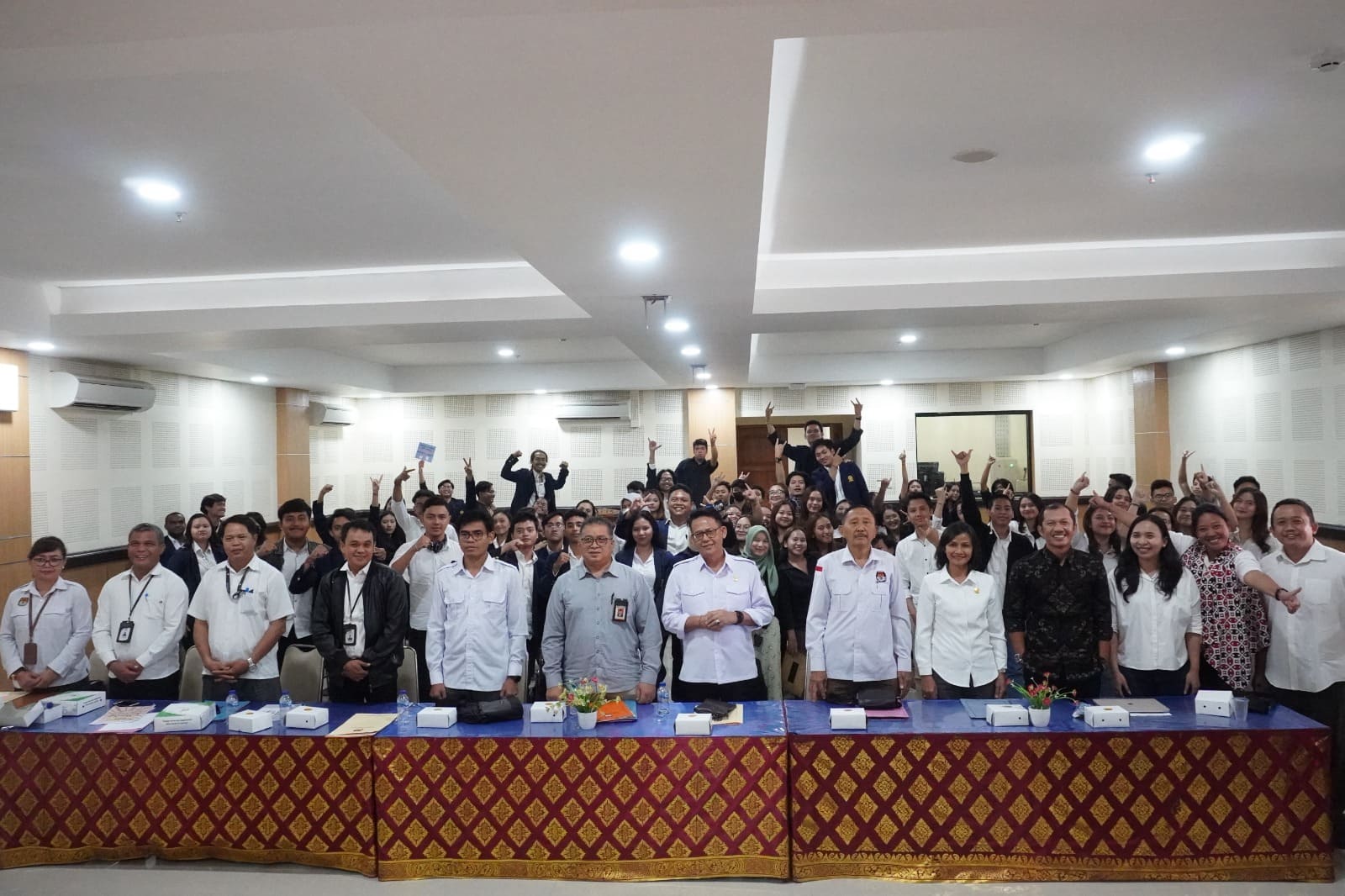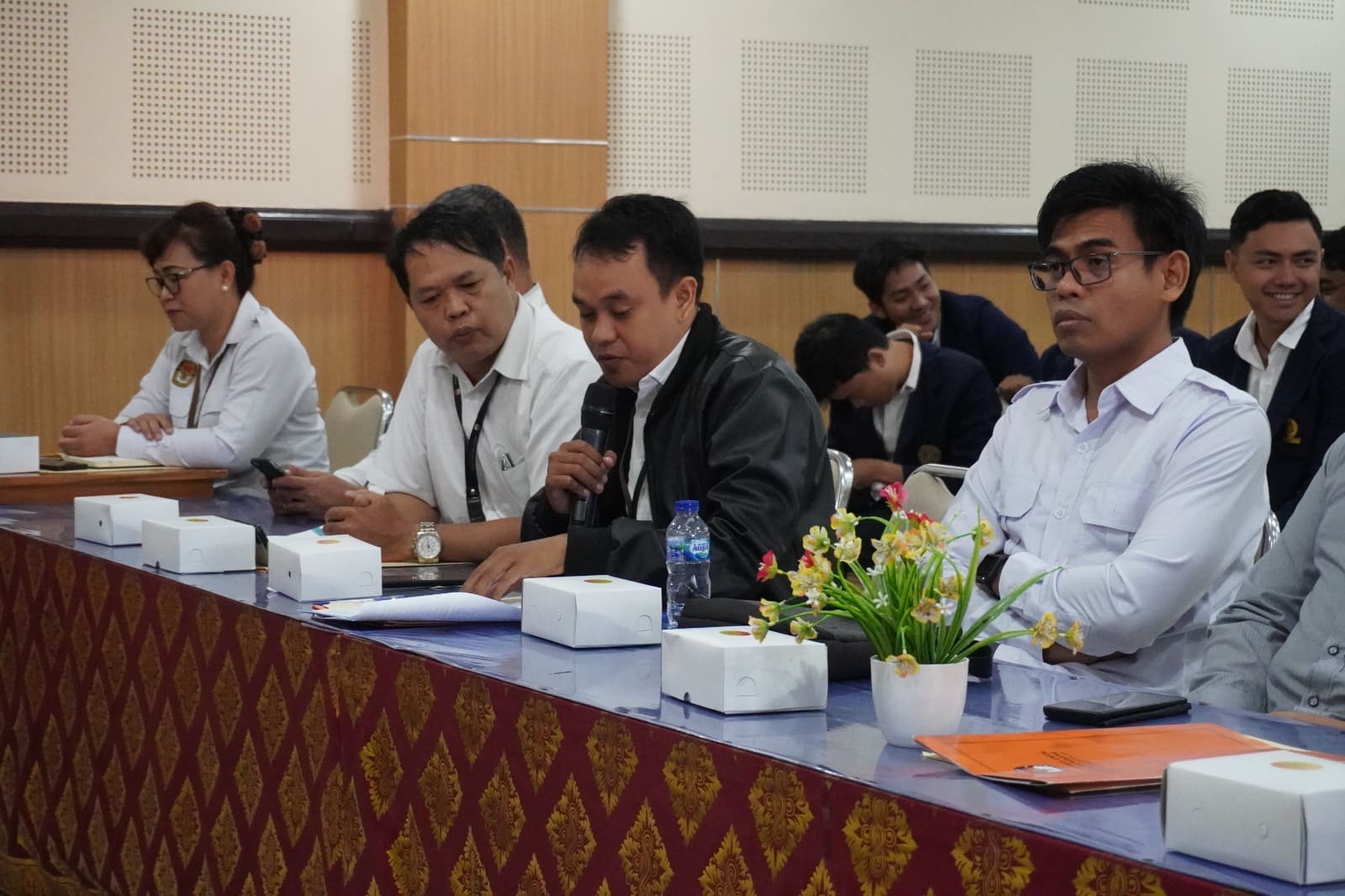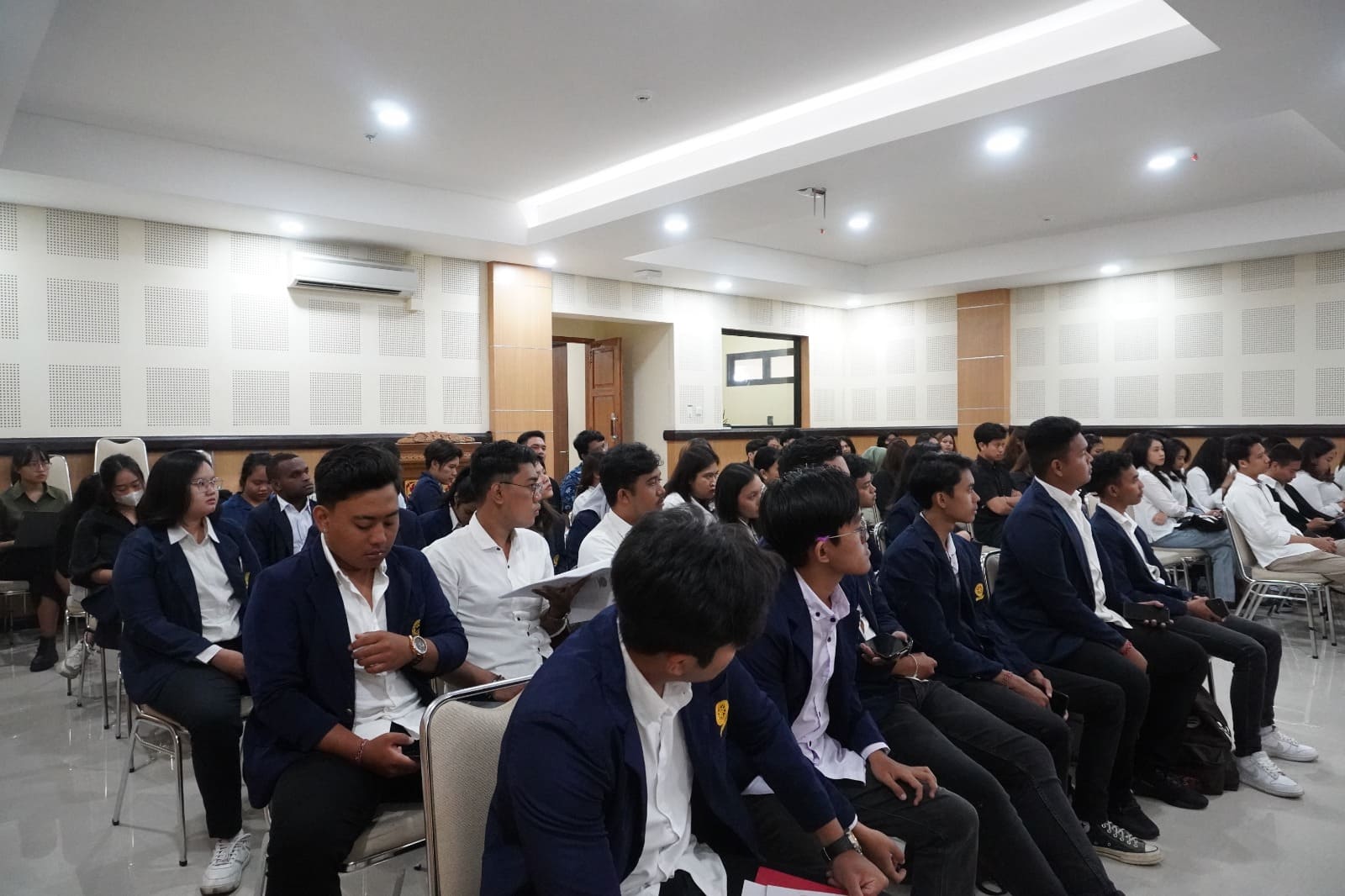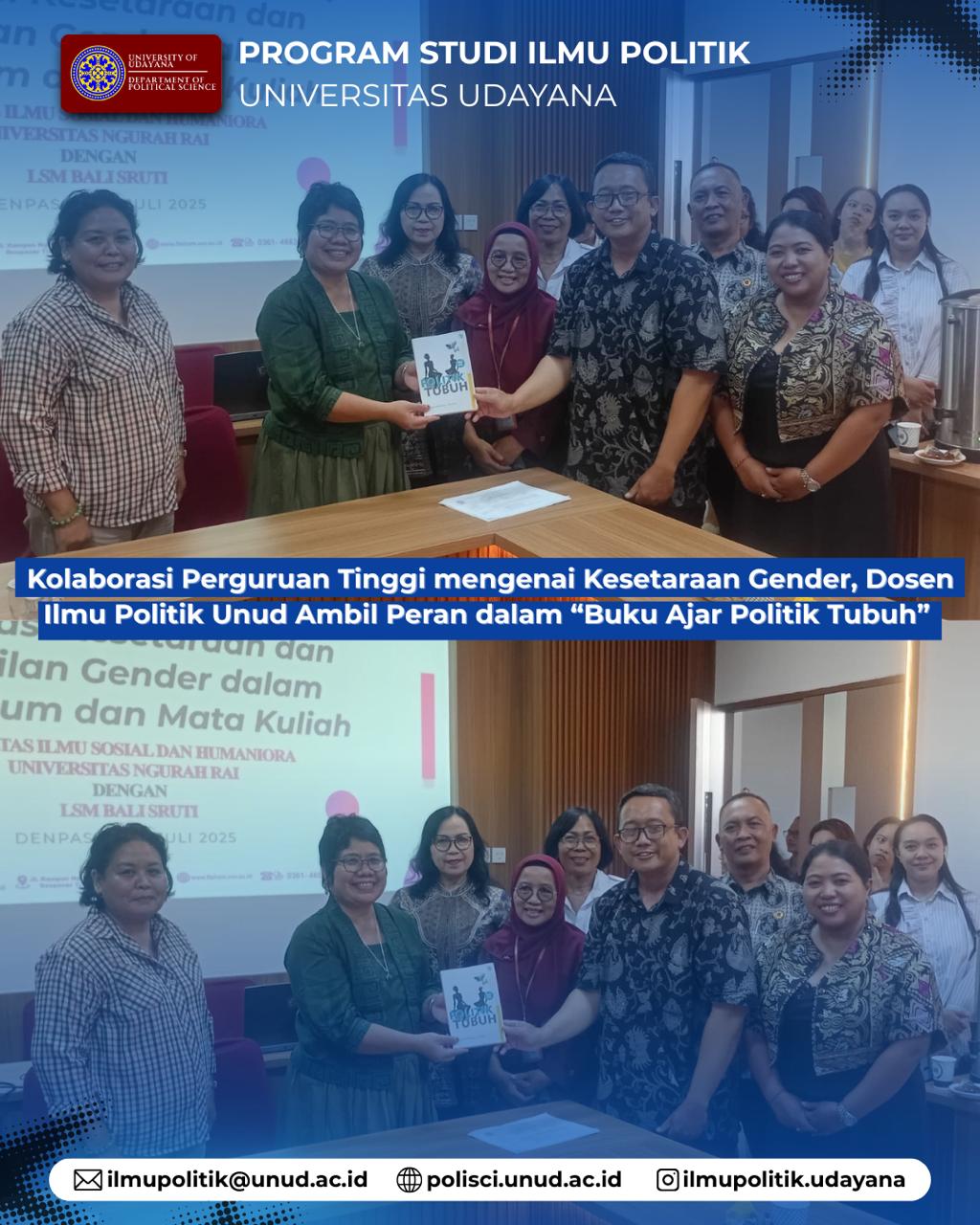Inviting KPU representatives from all over Bali, Udayana Political Science Holds a Presentation of the 2024 Election Socialization Project
Denpasar, "There is a gap between the
world of direct politics (electoral politics) which will soon take place in
2024 and the socialization model, which seems more monotonous than what
currently exists—judging from the number of attendees, from the affordability
which is getting smaller day by day. So, from the campus world, what we can
contribute is innovation and fresh ideas that are available to students. The
projects that will be presented are ready to be implemented, and the students
are also willing to participate in implementing them.” Said Kadek Dwita at the
opening of the 2024 Election Socialization Project Explanation Activity.
(26/06/2023)
Taking place in the Hall of the Faculty of
Social and Political Sciences (FISIP) Udayana University, this activity is the
final examination from the General Election course taught by Dr. Kadek
Dwita Apriani, S.Sos., M.IP. Unlike the final exam in general, this time, the
exam is packaged in the form of a project presentation which is the result of
implementing Project Base Learning in this course. The application of the
learning system is intended to provide a technical understanding of material
related to elections and hone student creativity in providing solutions related
to election socialization issues.
In addition, by inviting representatives from
the General Election Commission (KPU) throughout Bali who are partners of
Udayana University's FISIP, it is hoped that the presentation of these projects
can answer the obstacles to implementing election socialization carried out by
the KPU. The presence of KPU throughout Bali is also to help provide input on
the project designs presented. Also, present in welcoming this activity, Dr.
Drs. I Nengah Punia, M.Sc., as Dean of FISIP Udayana University, together with
Dr. Ni Made Ras Amanda Gelgel, S.Sos., M.Sc., as Deputy Dean I and Dr. Tedi
Erviantono, S.IP., M.Sc., as Coordinator of the Political Science Study
Program.
In his remarks, Nengah Punia really
appreciated the implementation of this activity and hoped that it would be
useful not only for students but also for the success of holding the 2024
elections. Furthermore, a 15-minute project presentation was carried out by
each group of Political Science students in 2021 and was accompanied by a
question session answer for 10 minutes.
There are 6 (six) student groups with their
respective innovations, such as Ballot Box Simulation, PONDASI PEMILU (Portal
Online Demokrasi dan Sistem Informasi Pemilu), Jelajah KPU, LuputGen-Z,
Electoral Quizizz, and See Vote. Each group also explained the background and
problems found in the field, which became the starting point for project
design. Each group received a positive response and a number of inputs from
representatives of the Provincial and Regency/City KPU. Several groups also
received direct responses related to the interest of a number of KPUs in the
Regency to apply the projects that had been planned.
During the activity, the students explained
their project smoothly, and the questions asked were well answered. Apart from
providing various benefits, according to Vara, as one of the students from
group 2, she is also happy to be able to contribute ideas for the smooth
running of the upcoming election and is happy to be able to present them
directly in front of the election organizers. Also, present to witness this
activity, Gede Wisnu from political science students 2022 was amazed by the
socialization innovations that lead to first-time voters as brought up by
Political Science Students of 2021.
From the point of view of election organizers,
I Gede John Darmawan as a member of the Bali Province KPU, also appreciated the
role of students' active participation in elections, especially in developing
formulas in the field of outreach that targeted first-time and millennial voters.
Appreciation also came from the Coordinator of the Political Science Study
Program, Tedi Erviantono, who also hoped that a similar learning format could
soon be followed in several courses at Udayana Political Science. In the end,
this activity was closed with a group photo activity and free time. In this
free program, each group approached a number of KPU representatives from all
over Bali who were present to discuss further the project that had been
designed. (Ritaro)






FACULTY OF SOCIAL AND POLITICAL SCIENCE